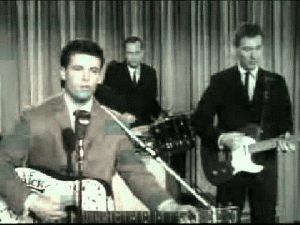My big TV-watching time is in the mornings while I exercise. I save up episodes of series I'd never give 100 percent of my attention, usually detective shows (and never medical ones). But there is one family drama in my queue: Parenthood. Yesterday morning I caught up with the final episode. As the characters' lives fast-forwarded through the finale, my tears started to fall.
A week or two ago, my husband sat beside me for a few minutes of the show and found it dismissible--a gaggle of entitled, self-involved, affluent, and attractive parents and siblings: who cares? I could quibble, arguing that it's not plain vanilla. Two of the three adult children have mixed-race families, and the other one has bootstrapped her life as a single mother with two kids after leaving the spineless, addicted rock'n'roll wash-up she married. One grandchild has Asperger's, another was adopted after his imprisoned mother gave him up, a third is a lesbian, a fourth has just become a single mother, pregnant by her PTSD-addled boyfriend.
But I know what he meant: they all somehow manage to be perfectly dressed and groomed in their perfect houses. They talk mostly in Hollywood quips, arch and clever. The family name--Braverman--sounds Jewish, but they have been entirely purged of ethnic identity and for that matter, of much personal history predating the show. They are in each other's lives constantly, exhaustingly, and all of them love each other in a fierce unconditional mob-sized revel that I've only experienced in drama. No matter what the trial, no matter how halting the lead-in, every challenge culminates in a heart-to-heart that heals all wounds.
When one character died and another was born, when some were married and others reconciled--when the raveled edges of plot knit themselves into some type of resolution as the series came to an end while I exercised yesterday morning--I knew exactly what made me cry. The voice in my head expressed pure yearning, and the yearning was for an unconditional embrace in the great bosom of a multi-generational family. It had exactly the character it always has, the bittersweet desire for a consolation that is never complete.
I have a friend who grew up embedded in a family drama at least as operatic and appalling as my own, colored by some of the same themes of immigration and otherness. (Though also very different, as the first line of Anna Karenina explains: "Happy families are all alike; every unhappy family is unhappy in its own way.") Someone once asked why he wasn't in jail, or dead, or hopelessly addicted, and his answer was Ozzie and Harriet.
I absolutely understand and entirely believe him.
For those who never had the pleasure, Ozzie and Harriet was an iconic TV series of the fifties and sixties (and for years prior to that, a radio show) conceived and directed by the paterfamilias, Ozzie Nelson, and starring his actual family playing versions of themselves. They were the whitest people I'd ever seen, and they enacted the American family as archetypically good: chipper, innocent, modest, orderly, obedient, and clean. The show had legs because the younger son Ricky became a pop star, so many of the youngsters who started watching in grade school carried on as teenagers, maturing along with the Nelson kids.
The critique of this depiction of America practically writes itself: all the lives, circumstances, and challenges that are omitted when family is bleached, starched, and pumped up on cheeroids; all the implications about what family is, who belongs and who doesn't.
But so does the feeling of possibility that is engaged by the story of a happy family. Over time, viewers of episodic drama come to feel that they actually know the characters and their lives. Our mirror neurons are activated, and when characters have reason to celebrate or mourn, we do too, the same chemicals flooding our brains as when our real lives take a turn for the better or worse. We may worry when characters are ill or facing a personal test. Even if we never think of them outside of weekly telecasts, as their affectionate faces and accepting gazes fill the screen, some of us experience a feeling of homecoming that our childhood homes foreclosed.
I have friends who never watch TV. Indeed, there was a whole chunk of the countercultural sixties and seventies when I refused to own one. I understand. The commercial cultural industries are surely the most powerful hegemonic force in establishing or denying cultural citizenship, in marginalizing women, people of color, and all minorities. But even as they exploit our yearning, they also embody it.
Ozzie and Harriet gave my friend the idea that a world of possible happiness existed beyond the stifling bounds of a family in which he was made to feel--as so many unhappy children are--that there is no alternative, no escape. It wasn't exactly me crying through my sit-ups as the final episode of Parenthood unspooled. It was a much, much younger girl in another time and place who lives on in a corner of my mind.
It may not be your taste--you may not call it good--but there's no question in my mind that this modern dramatic form, episodic TV, demonstrates the power of art. In my world of cultural politics, we mostly focus on its potential to do harm. But sometimes, for some people, you could even say it saved a life. Welcome to the world of mixed blessing.
Ricky Nelson, "I Will Follow You." This is his regendered version of a 1963 number-one hit for Little Peggy March. On the show, he typically performed other artists' songs in the frame of a family gathering or high-school dance.





